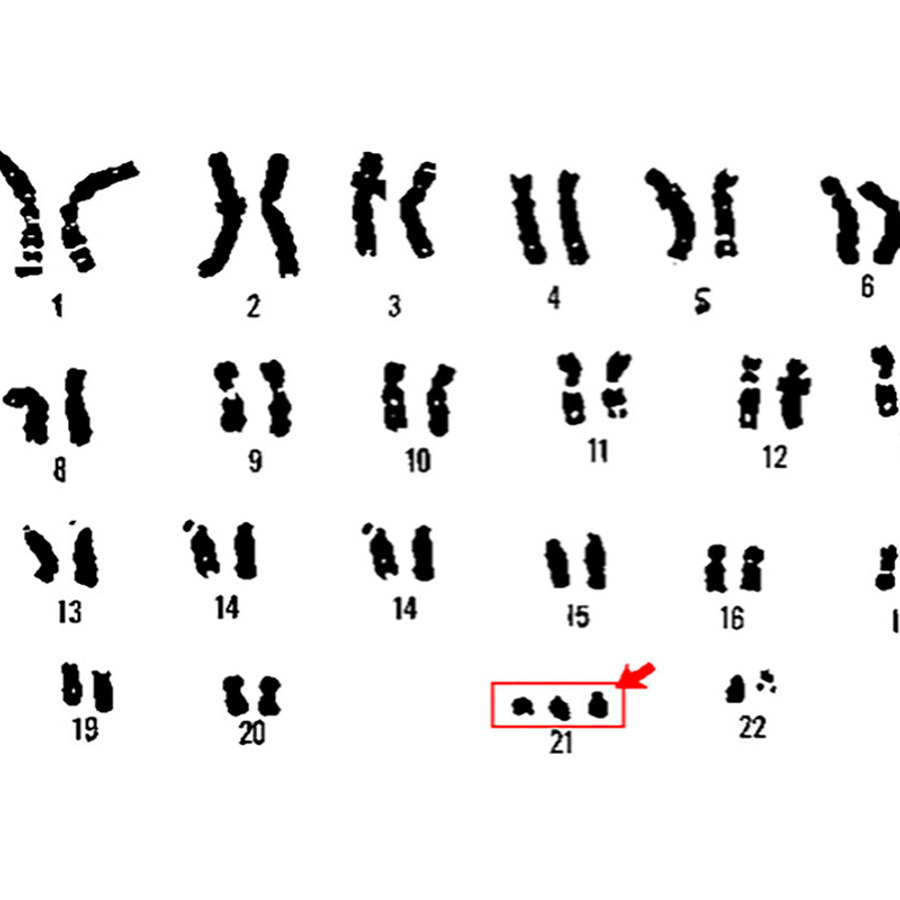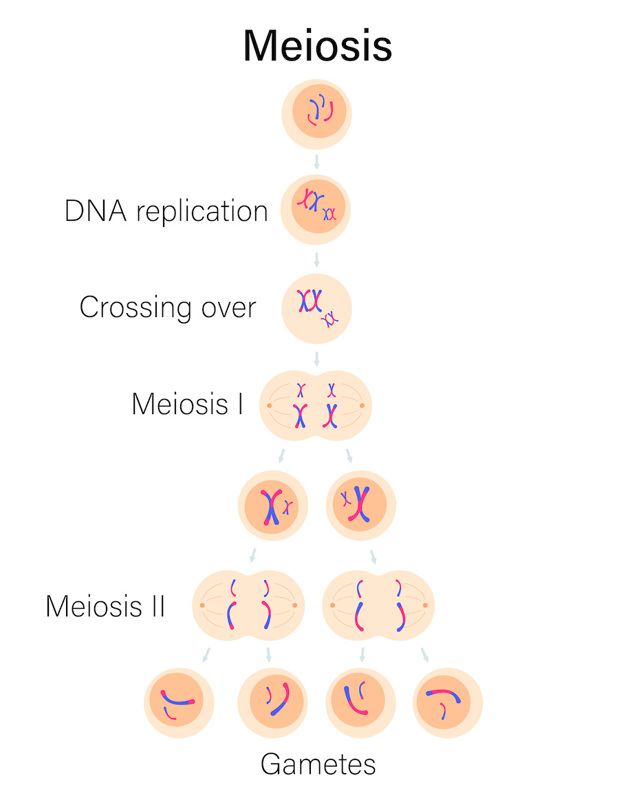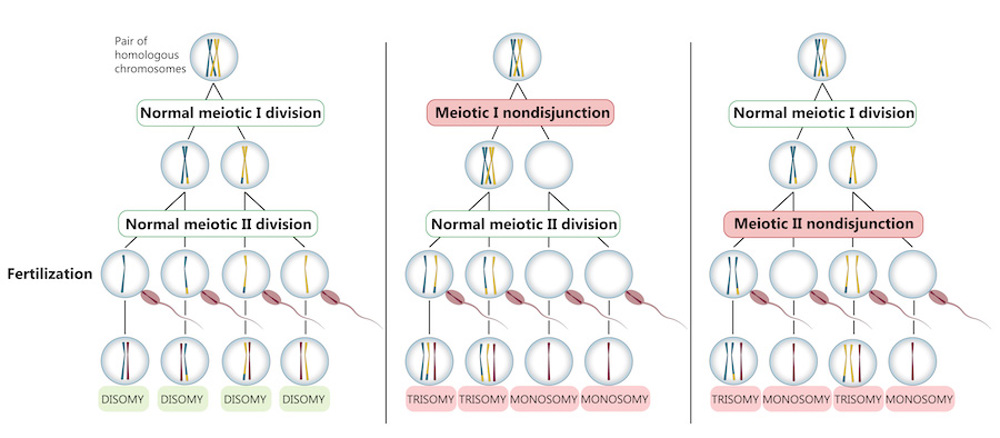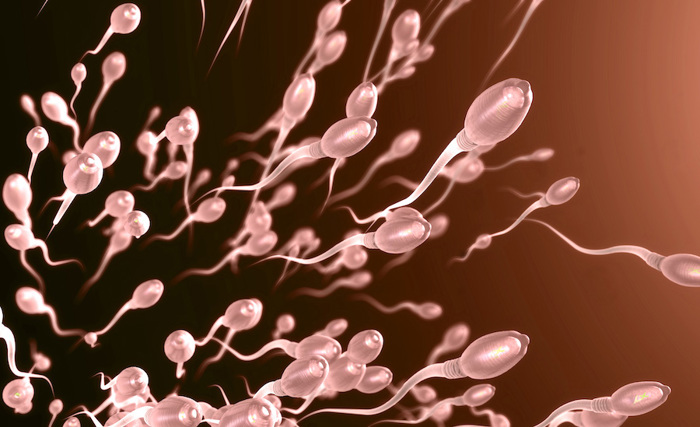
Why are older women more likely to have babies with complications like Down syndrome?
October 4, 2007

- Related Topics:
- Aging,
- Reproduction,
- Meiosis,
- Trisomy/Aneuploidy
An undergraduate from California asks:
“Why is it that older women are more likely to have babies with complications like Down syndrome than younger women?”
Such a complicated question! Yes, it is true that older women are at a higher risk for having babies with chromosomal conditions like Down syndrome. We’ve known this for years. The next question is: why does this happen?
Usually we hear answers like, “Old eggs go bad.” There is some truth to this statement but we still don’t understand how or why older eggs are more likely to have complications. To try to get at this question, we need to ask why older men aren’t at a higher risk for being the father of a child with Down syndrome.
Now even this isn’t entirely true. Some studies have shown that older dads can be at a higher risk for fathering a child with Down syndrome, but the risks are nothing like being an older mom. The reasons for the difference have a lot to do with how sperm and eggs are made. And the fact that a sperm has to compete with millions of other sperm to make it to an egg.
A woman is born with all of the eggs she will ever have. Once a man reaches puberty, he is constantly cranking out new sperm. Let’s see why this fact matters.
Eggs and sperm start out with the usual 46 chromosomes but end up with 23. To get there, eggs and sperm use a process called meiosis.
Meiosis is a little confusing, but bear with me here. In the first step, the number of chromosomes actually doubles to 92. The cell then splits into 2 and each cell ends up with 46. Then the cell splits again so that each cell ends up with 23. At least that is how it works when everything goes right.

But sometimes the process of splitting up the chromosomes doesn’t go well. When this happens an egg or sperm might get an extra copy of a chromosome. Or end up with one less.
If an egg with 24 chromosomes is fertilized, then the baby will end up with a total of 47 chromosomes. The same thing happens when a sperm with 24 chromosomes fertilizes an egg. If the extra chromosome happens to be number 21, then the child will have Down syndrome.

By the way, this sort of thing is possible with any chromosome. We just hear about chromosome 21 because a person can live with an extra chromosome 21. An extra copy of most of the other chromosomes usually results in a miscarriage or premature death.
As I said, these meiosis mistakes can happen in both sperm and eggs. They are just much more common in older women’s eggs, rather than in sperm.
The reason for this is that usually only one egg is released at a time. But lots of sperm are released for each fertilization. The reason this matters is that sperm that have an extra chromosome don’t do as well as “normal” sperm in getting to an egg, so they fade out on the long journey up the Fallopian tube to the egg. So even if older men made more sperm with extra chromosomes, these sperm would be much less likely to make it to the egg.
This is a big part of why extra chromosomes tend to come from the woman’s egg and not the man’s sperm. But we still haven’t answered why an older woman’s egg is more likely to have an extra chromosome compared to a younger woman’s egg. Almost certainly the age of the egg is involved. But how?
Breakdown in egg machinery
In women, meiosis starts in the ovaries before a woman is even born but it stops before the final egg is made. In fact, meiosis doesn’t finish until after an egg is fertilized! This means that eggs are stuck in this cell division process for decades. And when they finally start up again, they have to pick up where they left off and finish the process.
It is this “time period” that scientists think is the reason for meiosis “mistakes” and chromosome abnormalities like Down syndrome. The longer eggs are stuck in meiosis, the greater the chance for errors.
This tells us the “what” but not the “why.” Scientists are still trying to sort out why being stuck in the middle of meiosis can cause these problems. One idea is that it might have to do with the machinery for making eggs.

Basically, as a woman gets older her meiosis machinery can change. This could mean that it builds up the effects of years of environmental and age-related damages. This might make the machinery less efficient and more likely to make a mistake.
But the machinery is made up of so many different parts that it is hard to tell where the problem lies. Scientists are starting to have a few clues and have narrowed down the hunt to a few key genes.
Most of these genes make proteins that are part of the “cohesin complex.” To understand what this complex is and what it does, we need to go a bit deeper into meiosis.
Remember I said that in meiosis, sperm and egg cells both go from 92 to 46 to 23 chromosomes in two steps. The way a cell does this is by lining the chromosomes up at the middle of the cell and then pulling half of them one way and the other half the other way.
The cohesin complex is basically the part of the machinery that holds chromosomes together while they are lined up. When one of these proteins has something wrong with it, you often get an egg with an abnormal number of chromosomes. Scientists aren’t sure how, but maybe these proteins simply deteriorate with age.

There is also evidence to suggest that a mother’s hormones might play a role. As a woman gets older her body might not be able to regulate meiosis as well as it used to. And this could lead to eggs with different numbers of chromosomes being made.
These same chromosomal issues happen in sperm, although they don’t happen as often. This might be due to the fact that sperm are constantly being made so that any sperm with an atypical number of chromosomes will be weeded out. And we’ve already mentioned the intense competition between sperm!
But this doesn’t mean that a father’s age doesn’t matter at all. The sperm of older men can have issues too, but these tend to have different impacts and lead to the child having other genetic conditions.
Of course this doesn’t mean that older men and women can’t have a healthy baby ... in fact, most do. But the risk for chromosome abnormalities does increase with a woman’s age and more research needs to be done to figure out why this is. Maybe this can also help us to understand how chromosome abnormalities happen at all.

Author: Monica Rodriguez
When this answer was published in 2007, Monica was a Ph.D. candidate in the Department of Genetics, studying drosophila sex determination in Bruce Baker's laboratory. Monica wrote this answer while participating in the Stanford at The Tech program.
 Skip Navigation
Skip Navigation
